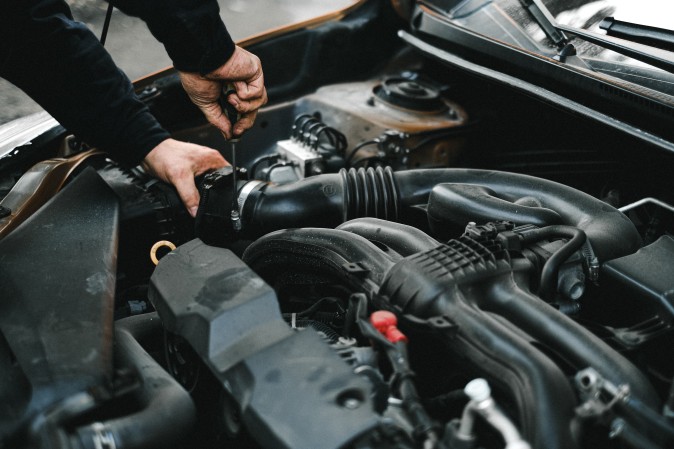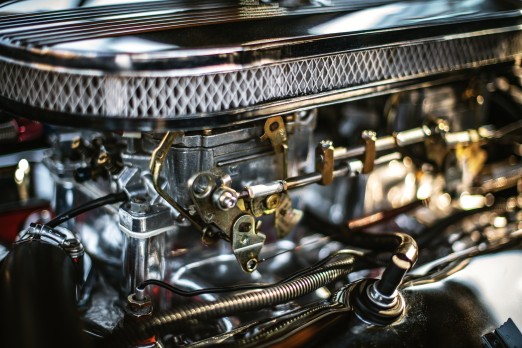Making the proper gear oil choice for your car is an important choice that will affect its lifetime and performance. Of the several alternatives, there are two that are frequently discussed: 75W90 and 75W140. It is vital to comprehend the subtle differences between these two gear oils to guarantee the best possible performance and safeguard your car’s differential and gearbox.
Importance of Choosing the Right Gear Oil:
It is impossible to overestimate the importance of selecting the proper gear oil for your car since it is crucial to preserving the performance and longevity of vital parts like differentials and transmissions. Gear oil’s main job is to lubricate these complex systems, minimizing wear and friction between moving parts. Increased heat, early component wear, and even catastrophic failures can result from inadequate or inappropriate lubrication. Selecting between 75W90 and 75W140 gear oils requires more thought than math; it also entails being aware of the requirements and operating circumstances of your car. Proper gear oil selection guarantees seamless gear changes, maximum power transmission, and overall system longevity.

Understanding Gear Oil Viscosity:
The viscosity of gear oil is essential for the differential and gearbox systems of a car to operate correctly. The viscosity grading method used by the Society of Automotive Engineers (SAE) classifies the oil according to its resistance to flow. Numbers are used to indicate the viscosity rating, for example, 75W90 or 75W140. Now let us explore the main ideas surrounding gear oil viscosity:
- SAE Viscosity Ratings:
- Oils are given viscosity ratings by the SAE, which represent their flow properties at various temperatures.
- The viscosity of the oil at low temperatures is indicated by the first number (such as 75W), while the viscosity at operating temperatures is indicated by the second number (such as 90 or 140).
- The ‘W’ represents ‘Winter,’ denoting the oil’s ability to function in chilly weather.
- Cold-Weather Performance (First Number):
- The better the oil’s cold-flow characteristics, the lower the first number. For example, 75W90 is less viscous at low temperatures than 75W140.
- This is essential to provide smooth gear engagement in cold regions, avoid wear, and provide adequate lubrication during cold starts.
- Operating Temperature Performance (Second Number):
- At working temperatures, the thicker the oil, the higher the second number.
- The oil’s capacity to retain a protective coating at high loads and temperatures, therefore averting metal-to-metal contact, is dependent on its viscosity at working temperatures.
- Viscosity Index (VI):
- The viscosity index quantifies the degree to which the viscosity of oil varies with temperature.
- Greater VI values guarantee consistent performance across a wide temperature range by indicating less viscosity change with temperature.
- Performance Characteristics:
- 75W90:
- Usually utilized in applications with moderate to high performance.
- provides a balance between the flow of freezing weather and the steadiness of warm temperatures.
- preferred for seamless gear changes and economical use of gasoline.
- 75W140:
- designed for heavy-duty applications and vehicles that require greater torque loads in mind.
- improves load-carrying ability and offers better protection in harsh environments.
- Ideal for off-road and high-performance automobiles.
- 75W90:
75W90 Gear Oil:
1. Ideal Applications and Use Cases:
- suitable with a large variety of automobiles, including SUVs, trucks, and sedans.
- frequently used in situations requiring gear oil with moderate to high performance.
2. Viscosity Range and Performance Characteristics:
- Cold-Weather Performance (First Number – 75W):
- has strong cold-flow characteristics, guaranteeing adequate lubrication during cold starts.
- Perfect for cars that are driven in chilly areas.
- Operating Temperature Performance (Second Number – 90):
- keeps its viscosity steady at hot temperatures.
- strikes a balance between wear protection, fuel economy, and seamless gear changes.
3. Benefits and Drawbacks:
- Fuel Efficiency:
- provides more fuel economy in general as compared to oils with a greater viscosity.
- Ideal for cars where fuel efficiency is a top concern and for daily driving.
- Cold-Weather Performance:
- ensures seamless engagement of the gears in lower temperatures.
- Ideal for daily commute and city driving.
- Heat Resistance:
- Less able to carry weight than oils with a higher viscosity.
- Perfect for cars with conventional torque and power specs.

Summary:
- A compromise is struck between cold-weather performance and stability at feverish temperatures with 75W90 gear oil.
- Suitable for cars with average power needs, providing an adaptable answer for different driving scenarios.
- To get the most out of it, regular maintenance and following manufacturer instructions are essential.
75W140 Gear Oil:
1. Suitable Applications and When to Choose:
- specially designed for heavy-duty vehicles and situations where strong torque and load requirements are needed.
- recommended for off-road, performance-focused, and towing vehicles.
2. Viscosity Range and Performance Characteristics:
- Cold-Weather Performance (First Number – 75W):
- It has sufficient cold-flow characteristics while being thicker than other alternatives.
- Colder areas might benefit from its use, albeit it might not flow as quickly as oils with a lower viscosity.
- Operating Temperature Performance (Second Number – 140):
- has a viscosity that is greater at working temperatures.
- increased ability to bear weights, which makes it perfect for cars that operate in harsh environments or with big loads.
3. Advantages and Considerations:
- Enhanced Load-Carrying Capacity:
- Reduces gear wear by offering improved protection against high loads and torque.
- Perfect for hauling, off-roading, and high-performance driving, among other heavy-duty uses.
- Temperature Stability:
- provides improved protection against heat breakdown in demanding operational environments.
- Ideal for cars that are used for racing or hauling and that often run in feverish temperatures.
4. Considerations:
- Vehicle Type:
- Ideal for performance cars with strong torque and power requirements, trucks, and SUVs.
- Too much for regular passenger cars with moderate power needs.
- Usage Conditions:
- Excellent for cars with higher performance needs, off-road excursions, and heavy-duty applications.
- For maximum performance, regular monitoring and following manufacturer guidelines are essential.
Performance in Different Operating Conditions:
Certain gear oils, such as 75W90 and 75W140, function differently in different operating environments. Selecting the proper oil for your car requires knowing how these oils react to various loads and temperature ranges. Let us see how they function under different operating environments:
1. Cold Weather Performance:
- 75W90:
- During cold starts, smooth gear engagement is ensured by excellent cold-flow qualities.
- Ideal for cars running in chilly regions where lubrication must happen quickly.
- 75W140:
- thicker at low temperatures while maintaining sufficient cold-flow characteristics.
2. High-Temperature Performance:
- 75W90:
- keeps things stable at elevated temperatures and keeps viscosity from breaking down.
- Ideal for cars running in temperatures between average and moderately hot.
- 75W140:
- provides improved thermal stability, which makes it perfect for cars that are driven in hot weather.
- Even in extremely hot conditions, it resists viscosity breakdown, offering dependable protection for demanding applications.
3. Load-Carrying Capacity:
- 75W90:
- Sufficient load bearing ability to meet typical torque and power demands.
- Ideal for moderate-performance applications and everyday driving.
- 75W140:
- Excellent ability to handle loads, which makes it the preferred option for heavy-duty vehicles.
- Perfect for performance cars, trucks, and SUVs that must tow or operate in off-road conditions or with heavy loads.
4. Fuel Efficiency:
- 75W90:
- provides more fuel economy in general as compared to oils with a greater viscosity.
- Ideal for cars where fuel efficiency is a top concern and for daily driving.
- 75W140:
- could be a little less fuel efficient than 75W90.
- Perfect for situations where weight-bearing capability, power, and durability are more important than fuel efficiency.
5. Real-World Applications:
- 75W90:
- frequently seen in light-duty vehicles, sports automobiles, and passenger cars.
- Ideal for everyday commuting and driving in cities.
- 75W140:
- Preferred for heavy-duty applications, off-road adventures, towing, and high-performance driving.
- Ensures reliable protection in demanding conditions.

Compatibility and mixing of 75W90 and 75W140 Gear Oils:
Gear oil compatibility is a key factor to consider, particularly if you want to mix or change viscosity classes. Although certain gear oils work well together, some rules must be followed to safeguard the differential and gearbox systems in your car and provide the best possible performance.
1. Can 75W90 and 75W140 be Mixed?
- Yes:
- It is possible to combine 75W90 and 75W140 without experiencing any obvious problems.
- Mixing is frequently done while topping off levels or during partial fluid changes.
- Check Manufacturer Recommendations:
- Always follow the instructions and specs provided by the car manufacturer.
- Certain gear oils may be suggested by certain manufacturers, and combining various viscosities may be discouraged.
2. Considerations for Mixing or Switching:
- Similar Viscosity:
- It is best to select oils with comparable viscosity grades when alternating or combining them.
- Sustaining constant viscosity aids in ensuring appropriate performance and lubrication.
- Usage Conditions:
- Consider the manufacturer’s guidelines and the vehicle’s operating circumstances.
- The increased load-carrying capability of 75W140 may be advantageous for heavy-duty applications.
- Temperature Concerns:
- Should your car run in a wide temperature range, the decision between 75W90 and 75W140 should be based on the most common circumstances.
- Colder regions might be more suited for 75W90, while harsh circumstances or large weights can call for 75W140.
3. Perform a Compatibility Check:
- Consult with a Professional:
- If you are unsure about compatibility or the best option for your car, get advice from a qualified mechanic or stick to the manufacturer’s recommendations.
- Monitor Performance:
- Once the gear oil has been mixed or switched, observe its performance.
- Keep an eye out for any odd sounds, movements, or variations in the operating temperature.
4. Avoid Mixing with Incompatible Oils:
- Limited Compatibility:
- When combining gear oils with additive packages or requirements that differ, proceed with caution.
- Incompatibility may result in damage and decreased performance.
5. Fluid Change Intervals:
- Regular Maintenance:
- Whichever option you select, make sure to follow the suggested fluid change schedules.
- Frequent upkeep guarantees that the gear oil will always offer the best protection.
Frequently asked questions:
Can I combine 75w140 with 75w90?
It is typically permissible to combine 75W140 and 75W90, however, it is important to follow the manufacturer’s instructions.
Why is 75w140 needed?
Heavy-duty applications require 75W140 gear oil because it offers better protection and a higher load-bearing capability. Its increased viscosity guarantees endurance and dependability in demanding operating circumstances, making it perfect for trucks, SUVs, and performance cars dealing with high torque, towing, or off-road situations.
What makes a 140 different from a 75W-90?
The viscosity of 75W90 and 75W140 gear oils is the primary difference between them. Because 75W140 has a higher viscosity than 75W90, it is thicker due to the “140” in the formula.
How viscous is 75W140?
75W140 gear oil’s viscosity rating of “140” indicates that it is thick or viscous. Because of its increased viscosity, it can withstand heavier loads and provide superior protection in adverse environments, making it appropriate for heavy-duty applications.
Conclusion:
In summary, carefully evaluating the needs and operating circumstances of your vehicle is the key to selecting between 75W90 and 75W140 gear oils. Although 75W90 is well-suited for daily driving in milder areas due to its ability to balance cold-weather performance and high-temperature stability, 75W140 excels in heavy-duty applications by providing increased weight-carrying capacity and improved protection in harsh circumstances. Making an informed choice that is customized to your vehicle’s unique requirements is made possible by having a thorough understanding of the viscosity ratings, performance attributes, and compatibility factors. Whether you choose the strength of 75W140 or the adaptability of 75W90, the durability and best performance of your car’s differential and gearbox depend on routine maintenance, following manufacturer specifications, and careful performance monitoring.

